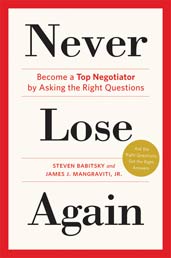7 Ways to Buy Organic Food on a Budget
7 Ways to Buy Organic Food on a Budget |  |
| 7 Ways to Buy Organic Food on a Budget Posted: 13 Apr 2011 04:00 AM PDT Many of us would like to buy organic food more often, but feel constrained by what we're certain will be sticker shock once we get to the store. However, a sharp eye and precise purchasing plan can help you buy organic food as often as you deem appropriate. These are my top seven strategies to buy organic food while still staying on-budget. Buy organic food in bulk. If you use a fair amount of organic grocery items, then buying them in bulk may in fact be the best budget solution. Consider warehouse stores such as Costco, or finding a group of organic growers with produce products to sell. (Tip: Check out this article on how to spend less on produce.) Not all organic food expires quickly. Shelf-stable rice, soy and almond milks are available by the case, as are multi-packs of strawberry fruit spread, peanut butter and more. So if your only bulk-buying option includes a long-distance drive, buddy up with a friend and make a day of it. Stock up for a few months to make it worth your time and effort. Your wallet will thank you. Multi-purpose pasta sauce. Several brands of organic, tomato-based pasta sauce are affordable. Pizza and sandwich sauces? Not so much. That's why I purchase affordable brands of basic marinara and use it for everything from quick pasta dinners when I don't want to make sauce from scratch, to pizza sauce or a sandwich ingredient when I'm making eggplant parmesan submarine sandwiches. For a convenience item, this stuff really goes the distance budget wise. You could also make a jar of your own with organic tomato puree and Italian seasoning. Either way, you've got a major time saver on your hands that's also super affordable. Hit the back yard. Hey, organic is all about food growing in its natural state, right? So try making some homemade crabapple sauce from that tree at the edge of the field, or picking some organic blueberries in the wild. Other ideas include strawberries for jam, edible greens or making your own maple syrup. These are all great ideas that will help you on your quest to have more organic food on the table, and require much less effort than a full garden. If you don't mind a few grow-your-own efforts however, try planting some rhubarb or growing a few herbs by a window. Trim the fat. Be honest. How many times have you pinched pennies on something healthy like organic carrots or some fresh cabbage, only to splurge on snack foods like corn chips or seasoned wheat crackers? Eliminating even a few of these processed, packaged items per month can carve out money for a number of organic food purchases such as fresh spinach, apples or even wine. Use these general tips for grocery shopping on a budget to guide you as you buy organic food as well. Stock the pantry. When it comes to frugal meal planning, purchasing basic food staples is just as powerful for the organic grocery shopper as it is for those buying conventional food items. Stock your pantry with organic flours, shortening and other supplies to create your own homemade baking mixes for biscuits, cornbread, artisan breads and brownies. Purchase bulk dried beans and lentils to store instead of canned or frozen. They'll take up less space, and save money as well. Generics. Store brands have always been a great option for those looking to pinch a penny. That hasn't changed just because you're looking to buy organic food. Search your favorite grocery chains for generic versions of your most commonly purchased organic food items. Examples include cereals, grains, pastas and condiments. Consider storing items that don't need to be refrigerated in your pantry as well. You'll be super stocked when the next storm rolls around. Be a cheapskate. What I'm talking about here is to focus on those organic food items that offer an exceptional price value. Lentils, cabbage, carrots and vinegar come to mind, but there are many others as well. Search out those items that even a conventional grocery cheapskate would consider a great deal, and find ways to use them in your meal planning. Frequently. Being healthy doesn't have to cost a hefty amount. Use these strategies to stay on track financially as you begin to search out and buy organic food. |
| Posted: 12 Apr 2011 10:00 AM PDT
There's certainly a market for such a lofty read. As a personal finance blogger who encourages people to never let an adversary take advantage of them, I routinely hear readers complain about what horrible negotiators they are. Apparently lots of people just can't or won't implement the unbendable axioms of negotiation – reject the first offer, walk away when you don't feel comfortable, say no and mean it, etc. The book is a set of 50 questions you're supposed to ask while negotiating. (#30, Will you give us a best-price guarantee?; #22, Do you realize that your competitor is charging a lower price?) Babitsky and Mangraviti open by painting a striking picture of a young Vietnam veteran who suffers a horrendous accident at work, becomes a quadriplegic, and gets a payout from his insurance company that barely covers toothpaste and floss. That is, until a hero comes to the rescue – a personal injury attorney, who just happens to be one of the authors. It's too much to expect that Babitsky be the one modest attorney in the universe. There are multiple places in the narrative where the authors could have been humble, but they're lawyers. They've never lost a negotiation, never been taken advantage of. They even refer to themselves as "sophisticated negotiators" who "went to prestigious schools". "We're very organized people" and "high-powered lawyers", a trite phrase that I thought only journalists use and that makes me wonder why there's no such thing as a high-powered civil engineer or a high-powered cruise director. Like most contemporary non-fiction authors, Babitsky and Mangraviti repeat themselves incessantly. The book is about 23% longer than it needs to be, but keep in mind that most books in this genre are about 70% longer than they need to be. As amateur writers (giving out impenetrable papers at legal conferences doesn't make them professional writers), B&M make the traditional rookie mistakes: For instance, don't call me "the reader". Engage me. I'm one person, just like everyone else reading Never Lose Again. It wouldn't kill you to call me "you". I won't go through all 50 questions, but take Question 1. "How did you hear about us?", is something you're supposed to ask of a buyer. The authors posit that you don't necessarily care how he heard about you, you just want to get him talking. Any information he gives you makes the situation asymmetrical, and knowing more about your opposite number than he knows about you is always good. The authors even give rebuttals in case you're the one being asked the question (in this case, the appropriate response is to treat the asker with light contempt seasoned with falsehoods. You're supposed to say something like, "I had my assistant come up with a list of 30 or 40 vendors who do this type of work so that we could aggressively compare cost and get the lowest possible price.") That theme runs through all 50 questions – lie, pretend to be interested, lie, determine whether your adversary is more susceptible to vinegar or honey, control the agenda, lie, and then lie. The authors include anecdotal examples of their own negotiating brilliance. Between them they got a piece of jewelry at 60% off, got 33% off the fees one credit card company charges, and got 35% off a phone bill. They make it sound as if Sprint or CenturyLink is willing to knock a huge chunk off your bill, and all you have to do is ask for it. But don't kid yourself. If you're responsible for .0001% of your phone company's revenue, they'll let you walk before giving you 8 free months of service and apologizing for not offering it to you in the first place. The authors admit that when they're operating as sellers, they themselves don't budge on price. No learning curve whatsoever. They came out of the womb as killer negotiators. Question 5 is a keeper: "Do you have full authority to negotiate and finalize a deal?", which they quoted almost chapter and verse from this humble little chapter of a previously released book. (When you're asked that question, you're supposed to say that everything's a group decision.) Some of the advice in Never Lose Again is idiotic, e.g. if a potential business partner asks you to send him an email saying what you want to discuss before you meet in person, you should say, "I would like to explore all avenues of potential synergy where we could possibly produce a win-win relationship." That's an actual quote, and given the tone of the book it's hard to imagine that they intended such mockable Corporatespeak as humor. Are there any fresh, original ideas in the book? A few. The authors do invert one piece of conventional wisdom, getting a price out of the other party first. Rather than do it that way, they argue that you should anchor instead. One of the questions is "Can you do the job for $x?" They argue that's you never want to give the other party time to think about the question. Even if your opponent typically charges $2x or $5x for such work, hearing your lowball number will apparently make him second-guess his entire pricing strategy and cede to your demands instead. Beyond that, every page contains a parable, maybe even a semi-true story, about how one author or the other reduced some buyer or seller to a sniveling mess via robust negotiating prowess. There's value in the book – it's Ulysses compared to some of the other attorney-penned garbage I've reviewed – but slogging through the authors' endless chest-thumping can be tedious. On the other hand, the book is a way to hire an attorney for a few hours for $26 total. Better still, read the book's 3-page conclusion and put its lessons into practice instead. |
| You are subscribed to email updates from Financial Highway To stop receiving these emails, you may unsubscribe now. | Email delivery powered by Google |
| Google Inc., 20 West Kinzie, Chicago IL USA 60610 | |




0 Comments:
Post a Comment
Subscribe to Post Comments [Atom]
<< Home